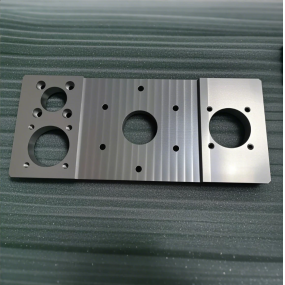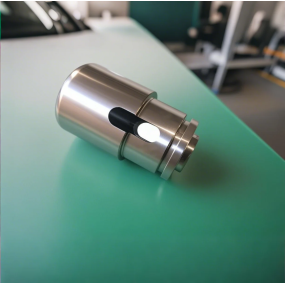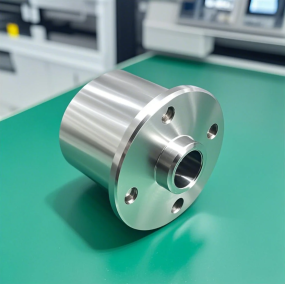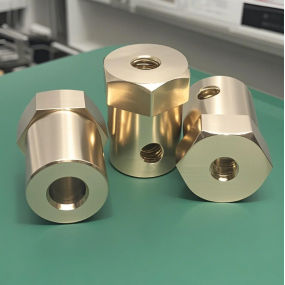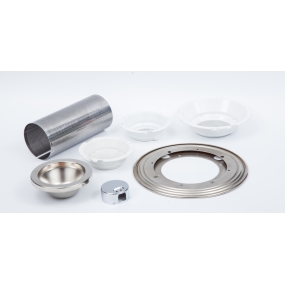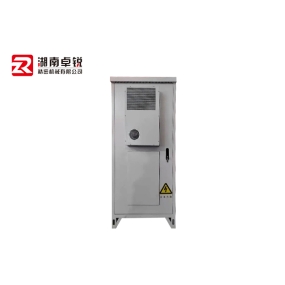Nowadays, users have higher and higher requirements for precision parts, not only conventional stainless steel or copper parts, but also aluminum alloy parts. Aluminum alloy, as a lightweight material of choice, has gradually replaced traditional alloy materials in many industries. For example, in the automotive industry, many larger car brands are pursuing lightweight while considering the application of aluminum alloy parts. In the industrial field, it has become a widely used non-ferrous metal. In addition to the automotive field mentioned above, excellent applications of aluminum alloy parts can be seen everywhere in shipbuilding, chemical research, aerospace and drone fields.
Throughout the aluminum alloy parts processing industry, whether it is scale or industry technology, has been rapid development and corresponding, a large number of new processing technology with a variety of performance, function, variety, use came into being. Its processing technology and detection technology are constantly advancing. At present, energy saving, environmental protection, safety, streamlining, continuous, efficient, quality and other development space have become the theme of aluminum alloy parts processing direction. The industry has also developed a large number of compact, precision, large-scale, efficient, environmentally friendly and energy-saving aluminum alloy processing technology and manufacturing equipment, which has promoted the development direction of aluminum alloy parts modernization.
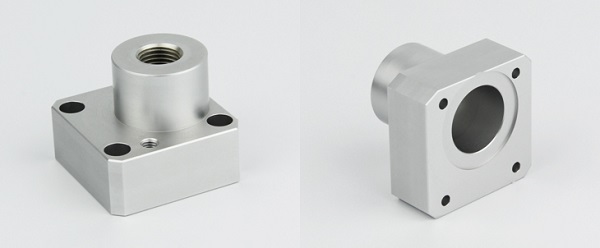 In developed countries and regions such as Europe and the United States, the aluminum alloy precision parts processing industry has completed the integration process of survival of the fittest and merger and reorganization. For example, Japan, the United States, Germany, Sweden, Russia and other countries have established multinational companies. These multinational companies have a complete product chain, carry out global resource deployment, make full use of local resources and markets, covering specific applications including mining, metallurgy, casting, extrusion, rolling, precision numerical control processing and downstream industries. It is conceivable that with upstream resources and downstream users, the division of labor within the company becomes more clear, and the production efficiency, product quality, and process cost will become lower, thus the price advantage will be obvious. This model can use a larger market and has stronger anti-risk capabilities.
In developed countries and regions such as Europe and the United States, the aluminum alloy precision parts processing industry has completed the integration process of survival of the fittest and merger and reorganization. For example, Japan, the United States, Germany, Sweden, Russia and other countries have established multinational companies. These multinational companies have a complete product chain, carry out global resource deployment, make full use of local resources and markets, covering specific applications including mining, metallurgy, casting, extrusion, rolling, precision numerical control processing and downstream industries. It is conceivable that with upstream resources and downstream users, the division of labor within the company becomes more clear, and the production efficiency, product quality, and process cost will become lower, thus the price advantage will be obvious. This model can use a larger market and has stronger anti-risk capabilities.
Looking at China, although our country‘s aluminum alloy parts processing industry has made great progress in recent years, it is undeniable that there is still a gap compared with developed countries in Europe and the United States. Our country‘s aluminum alloy parts processing started relatively late, manufacturing technology and manufacturing process are relatively lagging behind, high-end specifications are still relatively lacking, and many precision aluminum alloy parts have been dependent on imports for many years, but low-end manufacturers will mostly use cheaper domestic labor to ban them. There are many enterprises of various sizes, and the prices are uneven. The quality of the products is also relatively obvious, and the market competition is still relatively chaotic. It seems to be in a price-based competition stage. But it is not realistic for such enterprises to enter brand competition or participate in the manufacturing and processing of high-end products.
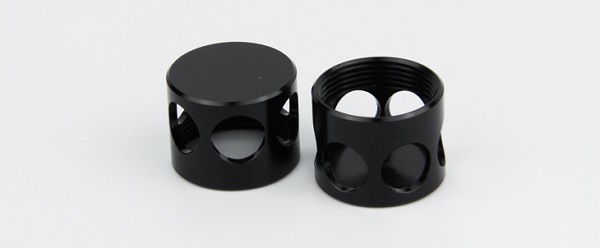 Many companies have a low degree of fine production and automation, resulting in extremely high product prices and costs, and profits are not optimistic when the price is suppressed by downstream customers. There are not many companies with fully automated production processes in China, and most manufacturers mainly focus on the field of profile production and ignore the price of precision machinery. A few companies with complete, fully automated, and high-end Product Research & Development are in a favorable position. EMAR Precision Technology has established a R & D and precision testing and process planning department, which is supported by a variety of precision processing equipment. It is undoubtedly very comfortable in the manufacturing of high-end products.
Many companies have a low degree of fine production and automation, resulting in extremely high product prices and costs, and profits are not optimistic when the price is suppressed by downstream customers. There are not many companies with fully automated production processes in China, and most manufacturers mainly focus on the field of profile production and ignore the price of precision machinery. A few companies with complete, fully automated, and high-end Product Research & Development are in a favorable position. EMAR Precision Technology has established a R & D and precision testing and process planning department, which is supported by a variety of precision processing equipment. It is undoubtedly very comfortable in the manufacturing of high-end products.
The processing of aluminum alloy precision parts is currently a basic industrial product in our country, and it is used in a very wide range of industries, such as electronic equipment, transportation, medical care, optics, industrial automation, aerospace, automobiles, drones, robots, etc. Manufacturers with more mature production technology and production process, comprehensive mastery of core technology and production automation, and manufacturers with independent research and development capabilities can easily expand into new industries. As companies in the industry cultivate colleagues from existing customers to speed up the automation upgrade of production flexibility, increase investment in R & D and technology, and actively expand the application field to downstream industries, otherwise the market concentration and maturity of the industry will be further improved, and low-end and overcapacity processing manufacturers will be gradually eliminated. Those manufacturers with small scale, relatively weak technical strength, and relatively backward processing techniques and means can only please users with low prices. However, as the market develops, these enterprises will also be ruthlessly eliminated by the market.
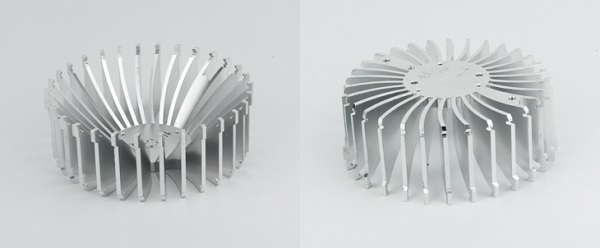 The precision machining of aluminum alloys is in the middle and lower reaches of the industrial chain, and its upstream is nothing more than raw materials, which mainly provide basic raw materials for processing enterprises, so the quality, processing technology, resource supply chain, etc. of the upstream have a direct impact on the production of products in the processing industry. The downstream of the company is the field related to aluminum alloy precision parts, and the demand for industry products will also be closely related to the upstream processing, and will develop synchronously with the demand of the downstream market.
The precision machining of aluminum alloys is in the middle and lower reaches of the industrial chain, and its upstream is nothing more than raw materials, which mainly provide basic raw materials for processing enterprises, so the quality, processing technology, resource supply chain, etc. of the upstream have a direct impact on the production of products in the processing industry. The downstream of the company is the field related to aluminum alloy precision parts, and the demand for industry products will also be closely related to the upstream processing, and will develop synchronously with the demand of the downstream market.
Precision parts processing of aluminum alloys involves subsequent processing links including stamping, CNC numerical control processing, heat treatment, oxidation, spraying, etc. Most of the costs come from the cost of processing links, and processing enterprises usually adopt the price of both ends of the supply and marketing and the price of the material itself. Therefore, enterprises with processing advantages can enhance the added value of products and standardized product management, improve the production efficiency of products to avoid the risk of upstream material price fluctuations and downstream application demand.
On the whole, with the continuous expansion of the application scope of aluminum alloy, the processing technology of aluminum alloy parts in our country needs to keep pace with the times, increase the intensity of processing technology and research and development, and seek new development. EMAR believes that there is no recession, only unsatisfactory. Then in the field of aluminum alloy parts processing, there is no backward industry, only backward and eliminated production technology and production methods. Aluminum alloy parts processing enterprises should enhance the awareness of innovation, improve the processing technology and technology to obtain better core competitiveness, and enterprises can gain their own fertile soil in the constantly developing market and be invincible.
 In order to meet the needs of products in different fields, EMAR precision technology has invested heavily in the introduction of advanced production and processing equipment. There are more than 100 machining centers, turning and milling compounding, numerical control centering machines, and numerical control lathes. A precision testing center composed of projectors, three-coordinate detectors, spectrometers, etc. is established to provide users with more comprehensive product solutions.
In order to meet the needs of products in different fields, EMAR precision technology has invested heavily in the introduction of advanced production and processing equipment. There are more than 100 machining centers, turning and milling compounding, numerical control centering machines, and numerical control lathes. A precision testing center composed of projectors, three-coordinate detectors, spectrometers, etc. is established to provide users with more comprehensive product solutions.


 English
English Spanish
Spanish Arabic
Arabic French
French Portuguese
Portuguese Belarusian
Belarusian Japanese
Japanese Russian
Russian Malay
Malay Icelandic
Icelandic Bulgarian
Bulgarian Azerbaijani
Azerbaijani Estonian
Estonian Irish
Irish Polish
Polish Persian
Persian Boolean
Boolean Danish
Danish German
German Filipino
Filipino Finnish
Finnish Dutch
Dutch Galician
Galician Catalan
Catalan Czech
Czech Croatian
Croatian Latin
Latin Latvian
Latvian Romanian
Romanian Maltese
Maltese Macedonian
Macedonian Norwegian
Norwegian Swedish
Swedish Serbian
Serbian Slovak
Slovak Slovenian
Slovenian Swahili
Swahili Thai
Thai Turkish
Turkish Welsh
Welsh Urdu
Urdu Ukrainian
Ukrainian Greek
Greek Hungarian
Hungarian Italian
Italian Yiddish
Yiddish Indonesian
Indonesian Vietnamese
Vietnamese Haitian Creole
Haitian Creole Spanish Basque
Spanish Basque

